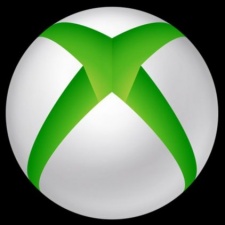The number of monthly active users (MAUs) on Microsoft's Xbox Live service was 63m for the three months ending March 31st, 2019.
That's according to the Big M's financial report which shows that Xbox Live MAUs dipped by one million quarter-on-quarter. For Q2 2019, the Xbox giant reported an active user base of 64m.
That 63m MAU figure is actually an increase of four million year-on-year, though in Q4 2018 and Q1 2019 Xbox Live had 57m active users each month. The rise to 64m in the three months ending December 31st, 2018 will be due to the fact that a huge number of games launch in the final quarter of the year as well as people having time off and thus more leisure time.
So why are we reporting on this seemingly inconsequential drop? Microsoft is citing that 64m figure left and right when discussing its plans for the future of Xbox Live - including the service coming to mobile - so it's important to keep an eye on how many active users the company actually has. Incidentally, in the GDC listing that outed the Big M's mobile Xbox Live plans, the company boasted 68m active users - though it's unclear whether this is in error or not.
Meanwhile, cash flow from Microsoft's games business was up five per cent year-on-year for the three months ending March 31st, 2019.
The firm reported revenue of $2.36bn from its games business for the last quarter. That's up $112m from the $2.25bn that this side of the company brought in for the same time in the 2018 fiscal year.
That $2.36bn was driven by a 12 per cent growth in Microsoft's cash from Xbox software and services. This is due to "strength" in third-party titles, as well as an increase in Xbox's Game Pass subscription service.
This 12 per cent hike offset a 33 per cent decline in sales of Xbox hardware, hardly surprising given that the current console generation is starting to wind down. No doubt that newly-announced and marginally cheaper All Digital Xbox One SKU might help keep hardware revenue buoyant, as will price dips to entice more casual consumers to get a console.
The company's games business also were part of a $601m spend on research and development for the last quarter, an increase of 16 per cent year-on-year. Microsoft's games business isn't solely responsible for this rise, with investments in cloud engineering and newly-acquired companies, developer resource GitHub and jobs social network LinkedIn also contributing to that figure.
For the nine months ending March 31st, 2019, R&D clocked in a $1.6bn in total - up 15 per cent year-on-year - with games once again being a contributing factor alongside LinkedIn and cloud engineering.
In the first three quarters of the 2018/19 financial year, Microsoft has also made 15 acquisitions, including GitHub.
Discounting that company, the Big M reports that it splashed $1.3bn on 14 purchases, six of which are game studios. The acquisitions of Ninja Theory, Undead Labs, Compulsion and Playground Games were announced at E3 2018, before Microsoft revealed it was buying RPG specialists Obsidian and InXile in November of that year. These are all part of the 13-developer strong and newly-rebranded Xbox Game Studios.
No valuation has been given for any of the acquisitions aside from GitHub so it's impossible to see how much cash Microsoft spent on these new studios.
Other acquisitions include conversational AI start-up Semantic Machines and education platform Flipgrid.













